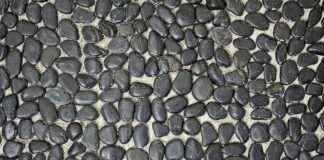This article delves into the guidelines regarding water consumption prior to a fasting blood draw. It addresses frequently asked questions and offers insights to help ensure accurate test results while maintaining proper hydration.
Understanding Fasting Blood Draws
Fasting blood draws are vital for obtaining accurate laboratory results. These tests require individuals to refrain from eating or drinking (except for water) for a specified period. The purpose of fasting is to eliminate any variables that could skew the results, providing a clearer picture of a person’s health status.
Why Is Fasting Important for Blood Tests?
Fasting is crucial for certain medical tests as it helps eliminate factors that can influence the results. For instance, consuming food or beverages can alter glucose levels, lipid profiles, and other biomarkers, leading to potentially misleading conclusions. This section highlights the significance of fasting and its impact on various blood tests.
Can You Drink Water While Fasting for Blood Tests?
Many individuals wonder if they can drink water during the fasting period. The general consensus among healthcare professionals is that drinking water is permitted and even encouraged before a fasting blood draw. Hydration aids in the process, making it easier for healthcare providers to locate veins and collect blood samples.
Hydration and Its Importance
Staying hydrated is essential for overall health. Adequate water intake ensures that your body functions optimally, which is particularly important when preparing for a blood draw. Proper hydration can help maintain blood volume and improve circulation, facilitating the blood collection process.
Effects of Water on Blood Test Results
Understanding how water consumption may influence test outcomes is crucial. Generally, drinking water does not affect most blood test results. However, certain tests, like those measuring electrolyte levels, may be slightly influenced by excessive water intake. It’s important to follow your healthcare provider’s instructions regarding water consumption before specific tests.
Types of Blood Tests Requiring Fasting
Not all blood tests necessitate fasting. Common tests that require fasting include:
- Glucose tests: Essential for diagnosing diabetes.
- Lipid panels: Used to assess cholesterol and triglyceride levels.
- Basic metabolic panels: Evaluates kidney function and electrolyte balance.
How Long Should You Fast Before a Blood Draw?
The fasting duration can vary depending on the type of test being performed. Typically, fasting lasts between 8 to 12 hours. For example, a glucose test may require an overnight fast of at least 8 hours, while lipid panels often necessitate a 12-hour fast.
Common Fasting Times for Different Tests
Here’s a brief overview of fasting times for popular blood tests:
| Test Type | Fasting Duration |
|---|---|
| Glucose Test | 8 hours |
| Lipid Panel | 12 hours |
| Basic Metabolic Panel | 8-12 hours |
What to Do if You Accidentally Eat or Drink?
Accidental consumption of food or beverages can raise concerns about the validity of your test results. If this occurs, it’s essential to inform your healthcare provider. They may advise rescheduling the blood draw or proceeding based on their professional judgment.
Preparing for Your Blood Draw
Preparation can streamline the blood draw process. Here are some tips:
- Plan ahead: Schedule your appointment early in the morning.
- Stay hydrated: Drink water before your appointment.
- Follow dietary guidelines: Adhere to any specific instructions provided by your healthcare provider.
Consulting Your Healthcare Provider
When in doubt, consult your healthcare provider. Discuss any concerns regarding fasting and water consumption prior to your blood draw. They can provide personalized guidance based on your health status and the tests being performed.
Conclusion: Best Practices for Fasting Blood Draws
In summary, understanding the guidelines surrounding water consumption before a fasting blood draw is essential for ensuring accurate test results. Staying hydrated while adhering to fasting requirements can enhance the blood draw experience and promote overall health.
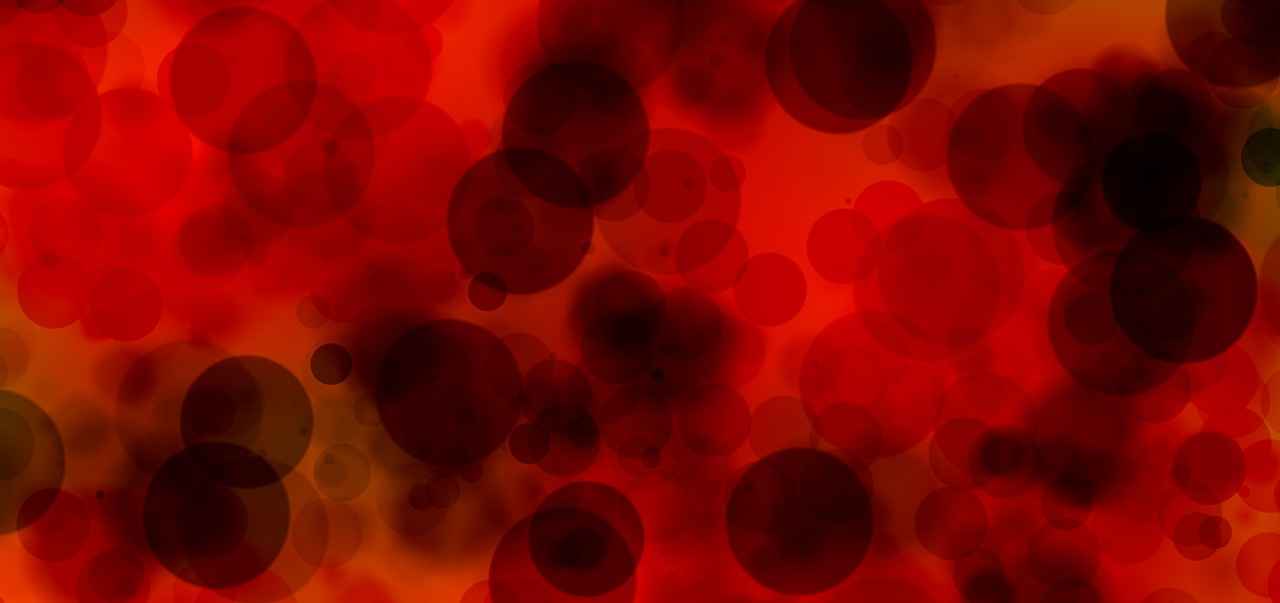
Understanding Fasting Blood Draws
is crucial for anyone undergoing medical testing. These procedures are designed to provide accurate and reliable lab results, which are essential for diagnosing and monitoring various health conditions. In this section, we will explore what a fasting blood draw entails, why it is necessary, and how it can impact your health assessments.
A fasting blood draw typically requires the patient to abstain from consuming any food or drink, except for water, for a specified period before the test. This period usually lasts between 8 to 12 hours, depending on the type of test being conducted. The rationale behind fasting is to ensure that the results reflect the body’s baseline state without interference from recent food intake. Consuming food can introduce variables that may skew the results, leading to inaccurate conclusions about a patient’s health.
Fasting is particularly important for tests measuring glucose levels, lipid profiles, and certain hormone levels. For instance, a lipid panel assesses cholesterol levels and triglycerides, which can be significantly affected by recent meals. If a patient eats before the test, their triglyceride levels may be elevated, leading to misinterpretation of their cardiovascular risk.
Moreover, fasting blood draws are essential for tests that evaluate metabolic function. For example, fasting glucose tests are used to diagnose diabetes and prediabetes. If a patient does not fast, the results may indicate a false positive or negative, complicating the diagnosis and subsequent treatment plans.
In addition to ensuring accurate results, fasting can also provide a clearer picture of how the body processes nutrients and manages blood sugar levels. This information is vital for healthcare providers to tailor treatment plans that best suit the patient’s needs.
It is important to note that not all blood tests require fasting. Tests such as complete blood counts (CBC) and basic metabolic panels may not necessitate fasting. Therefore, it’s crucial for patients to consult with their healthcare provider about the specific requirements for their tests.
In summary, understanding the significance of fasting blood draws is essential for anyone preparing for medical tests. By adhering to fasting guidelines, patients can help ensure that their lab results are accurate and reflective of their true health status. This knowledge empowers patients to take an active role in their healthcare, fostering better communication with their medical providers and enhancing overall health outcomes.

Why Is Fasting Important for Blood Tests?
Fasting before blood tests is a critical practice that ensures the accuracy of laboratory results. When you fast, you eliminate various variables that could potentially skew the test outcomes, providing a clearer picture of your health. In this section, we will delve into the significance of fasting and its impact on various blood tests, helping you understand why this practice is essential.
Fasting typically involves abstaining from all food and drink, except for water, for a specified period before your blood draw. This period usually ranges from 8 to 12 hours, depending on the type of test being conducted. The rationale behind fasting is simple: certain foods and beverages can alter the composition of your blood, leading to inaccurate results. For instance, consuming food can raise glucose levels, affecting tests for diabetes management, while fats from meals can interfere with lipid panel readings.
Different blood tests require fasting for various reasons:
- Glucose Tests: These tests measure blood sugar levels. Eating before the test can lead to elevated glucose levels, which may misrepresent your metabolic state.
- Lipid Panels: These tests assess cholesterol and triglyceride levels. Fasting helps to provide a clear view of your lipid profile without the influence of recent dietary intake.
- Liver Function Tests: Certain foods can impact liver enzyme levels, making fasting crucial for accurate liver health assessment.
Moreover, fasting can also reduce the likelihood of false positives and false negatives in test results. For example, a recent meal might elevate liver enzyme levels, which could be misinterpreted as liver disease. By fasting, you create a controlled environment that allows for more reliable interpretations of your health status.
It’s also essential to recognize that not all blood tests require fasting. Some tests, such as complete blood counts (CBC) and thyroid function tests, can be conducted without any dietary restrictions. Hence, it is vital to follow your healthcare provider’s specific instructions regarding fasting.
In summary, fasting plays a crucial role in ensuring the accuracy of blood tests. By adhering to fasting guidelines, you help eliminate potential variables that could affect your test results. This practice not only aids in obtaining precise measurements but also supports your healthcare provider in making informed decisions about your health.
Always consult your healthcare provider to understand the specific fasting requirements for your blood tests. This proactive approach ensures you are well-prepared and can contribute to a more accurate assessment of your health.

Can You Drink Water While Fasting for Blood Tests?
Many individuals are often uncertain about the guidelines surrounding water consumption during fasting periods, particularly when preparing for a blood draw. This article aims to clarify these guidelines, addressing common questions and providing insights to ensure both accurate test results and adequate hydration.
Understanding Fasting Blood Draws
A fasting blood draw is a procedure where blood is collected for testing after a period of not eating or drinking, typically lasting between 8 to 12 hours. This practice is essential for obtaining accurate lab results, as certain food and drink can influence the composition of the blood, potentially leading to misleading outcomes.
Why Is Fasting Important for Blood Tests?
Fasting helps eliminate variables that can affect the results of various blood tests, such as glucose levels and lipid profiles. Without fasting, the presence of food or drink in the bloodstream can skew results, leading to incorrect diagnoses or treatment plans.
The good news is that drinking water is generally permissible while fasting for blood tests. In fact, staying hydrated can be beneficial as it helps in the blood draw process, making veins more prominent and easier to access. However, it is crucial to avoid any flavored or sweetened beverages, which can interfere with test results.
Hydration and Its Importance
Maintaining hydration is vital for overall health. Adequate water intake before a blood draw can:
- Facilitate blood flow: Hydrated individuals often experience easier blood draws.
- Minimize discomfort: Proper hydration can reduce the chances of feeling lightheaded or faint during the procedure.
- Support accurate results: Some tests may require a certain volume of blood, which can be impacted by hydration levels.
Effects of Water on Blood Test Results
While drinking water is acceptable, it’s essential to understand how it may influence specific tests. For instance:
- Glucose Tests: Water does not affect fasting glucose levels, making it safe to consume.
- Lipid Panels: These tests require fasting but drinking water is allowed and can help with the blood draw.
However, it is recommended to avoid excessive amounts of water, as it could dilute blood samples, particularly in tests measuring concentrations of specific substances.
Types of Blood Tests Requiring Fasting
Not all blood tests necessitate fasting. Common tests that do include:
- Fasting Blood Glucose: To measure blood sugar levels accurately.
- Lipid Profile: To assess cholesterol and triglyceride levels.
- Comprehensive Metabolic Panel: To evaluate various chemical components in the blood.
How Long Should You Fast Before a Blood Draw?
The fasting duration can differ based on the test being performed. Generally, a fast of 8 to 12 hours is recommended. It’s vital to follow your healthcare provider’s specific instructions regarding fasting times to ensure optimal results.
What to Do if You Accidentally Eat or Drink?
If you accidentally consume food or drink before your blood draw, it is best to inform your healthcare provider. They may advise rescheduling the test to ensure accurate results.
Preparing for Your Blood Draw
Proper preparation can help make the blood draw process smoother. Consider the following tips:
- Schedule your appointment: Choose a time that aligns with your fasting period.
- Stay hydrated: Drink water, but avoid any food or beverages that could interfere with the test.
Consulting Your Healthcare Provider
When in doubt, it is always best to consult your healthcare provider regarding any concerns about fasting and water consumption. They can provide tailored advice based on your health needs and the specific tests being conducted.
Best Practices for Fasting Blood Draws
To summarize, drinking water is generally allowed during fasting for blood tests and can aid in the process. By understanding the guidelines and preparing adequately, you can ensure accurate test results while maintaining your hydration.
Hydration and Its Importance
Staying hydrated is crucial for overall health, and its importance cannot be overstated, especially when preparing for a blood draw. Hydration plays a pivotal role in various bodily functions, including circulation, digestion, and temperature regulation. This section delves into the benefits of maintaining proper hydration levels and how it can positively influence the blood draw process.
When you are adequately hydrated, your blood volume increases, making it easier for healthcare professionals to locate veins during a blood draw. This can significantly reduce the discomfort associated with the procedure. Additionally, hydration helps in thinning the blood, which can lead to more accurate test results. Dehydration, on the other hand, can cause blood to become thicker, making it more challenging to draw and potentially leading to complications.
Moreover, staying hydrated before a fasting blood draw can help mitigate feelings of dizziness or faintness, which some individuals may experience due to fasting. Drinking water can help maintain your energy levels and keep you feeling more comfortable throughout the process.
- Enhanced Blood Flow: Proper hydration improves circulation, making veins more prominent and easier to access.
- Accurate Test Results: Hydrated blood is less viscous, reducing the risk of erroneous lab results.
- Reduced Discomfort: A well-hydrated body can help minimize pain and discomfort during the draw.
- Improved Overall Health: Staying hydrated supports kidney function and helps in the detoxification processes.
It is essential to note that while drinking water is generally encouraged before a fasting blood draw, other beverages are not advisable. Caffeinated drinks or those containing sugar can affect hydration negatively and may interfere with test results. Therefore, it is best to stick to plain water.
In conclusion, proper hydration is a simple yet effective way to prepare for a blood draw. By ensuring you drink enough water beforehand, you can enhance your comfort during the procedure and improve the accuracy of your test results. Always remember to consult with your healthcare provider about your hydration needs prior to your blood test to ensure you are following the best practices for your specific situation.
Effects of Water on Blood Test Results
When it comes to blood tests, understanding the effects of water consumption is crucial for ensuring accurate results. Many individuals may not realize that even something as simple as drinking water can influence the outcomes of specific tests. This section delves into how water intake can impact various blood tests, providing insights that are vital for anyone preparing for a blood draw.
Firstly, it is important to recognize that hydration plays a significant role in the overall health of the body. Drinking adequate water can help maintain blood volume, which is essential for drawing accurate blood samples. However, the timing and amount of water consumed before a test can vary depending on the type of test being performed.
For instance, tests that measure glucose levels often require fasting, meaning no food or drink, except for water, should be consumed for a specific period before the test. While water does not contain calories or carbohydrates, excessive consumption may dilute blood samples, potentially skewing results. This dilution can lead to lower glucose readings, which might mislead healthcare providers about a patient’s actual blood sugar levels.
Similarly, tests that assess lipid profiles may also be affected by water intake. Although hydration is generally encouraged, drinking too much water right before the test can alter the concentration of lipids in the blood. A diluted sample may not accurately reflect a person’s cholesterol levels, which are critical for diagnosing cardiovascular health risks.
Moreover, certain tests, such as those measuring electrolyte levels, can be influenced by hydration status. Proper hydration is essential for accurate readings of sodium, potassium, and other electrolytes. However, excessive water intake can lead to hyperhydration, which can dilute these electrolytes and result in misleading test outcomes.
It’s also worth noting that while most healthcare providers recommend drinking water before a blood draw to stay hydrated, they may advise against consuming large quantities. As a rule of thumb, moderation is key. Typically, sipping water up to a couple of hours before the test can help maintain hydration without significant risk of affecting results.
In conclusion, while staying hydrated is essential for overall health and can facilitate a smoother blood draw, it is equally important to be mindful of water consumption prior to testing. Understanding how water can influence test outcomes allows individuals to make informed decisions that will lead to more accurate test results. Always consult with your healthcare provider for personalized advice regarding water intake before a fasting blood draw, as they can provide specific recommendations tailored to your health needs.
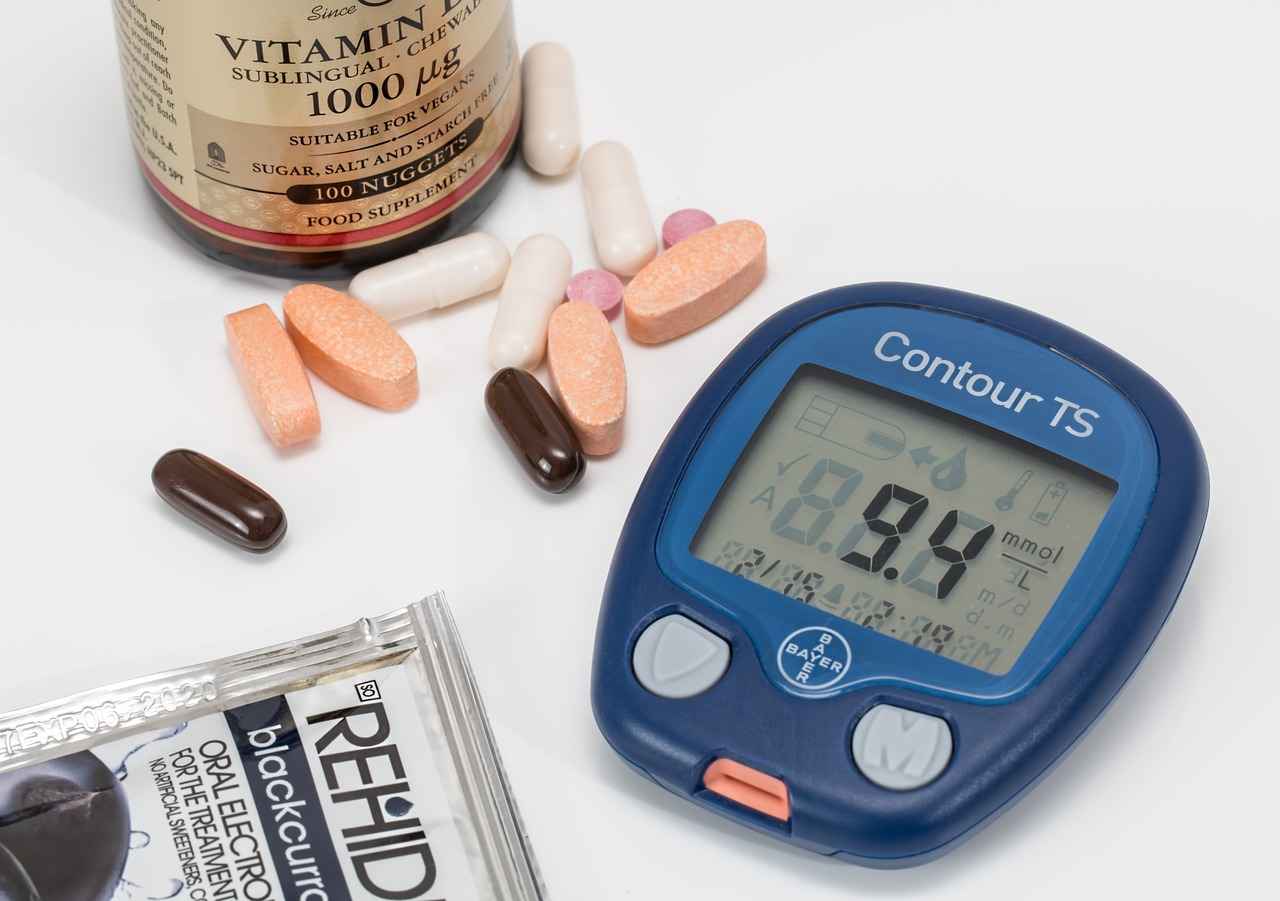
Types of Blood Tests Requiring Fasting
When it comes to blood tests, not all require fasting. However, understanding which tests do necessitate fasting is crucial for obtaining accurate results. In this section, we will explore the types of blood tests that require fasting and the reasons behind these requirements.
Fasting before a blood draw generally means refraining from all food and drinks, except for water, for a specified period. This practice is essential for certain tests as it helps to eliminate potential variables that could skew the results. Below, we outline the most common blood tests that necessitate fasting:
| Blood Test | Fasting Duration | Reason for Fasting |
|---|---|---|
| Glucose Test | 8-12 hours | To measure baseline blood sugar levels without interference from recent food intake. |
| Lipid Panel | 9-12 hours | To accurately assess cholesterol and triglyceride levels, which can be affected by food consumption. |
| Basic Metabolic Panel (BMP) | 8-12 hours | To evaluate glucose, calcium, and electrolyte levels without the influence of recent meals. |
| Comprehensive Metabolic Panel (CMP) | 8-12 hours | To provide a broader assessment of metabolic health, requiring fasting for accuracy. |
| Iron Tests | 8 hours | To determine iron levels in the blood, as food can affect iron absorption and levels. |
Fasting is particularly important for these tests because food can significantly alter the concentrations of various substances in the blood. For instance, consuming food can raise blood glucose levels, leading to misleading results in diabetes screening. Similarly, lipid levels can fluctuate dramatically after eating, making it essential to fast before a lipid panel to ensure accurate cholesterol and triglyceride readings.
It’s also worth noting that while many tests require fasting, others do not. For instance, complete blood counts (CBC) and thyroid function tests typically do not require fasting. Therefore, it is vital to consult with your healthcare provider regarding specific instructions for each test.
In summary, understanding the types of blood tests that require fasting and the rationale behind these requirements is crucial for anyone preparing for a blood draw. Adhering to fasting guidelines not only ensures accurate results but also helps healthcare providers make informed decisions regarding diagnosis and treatment.
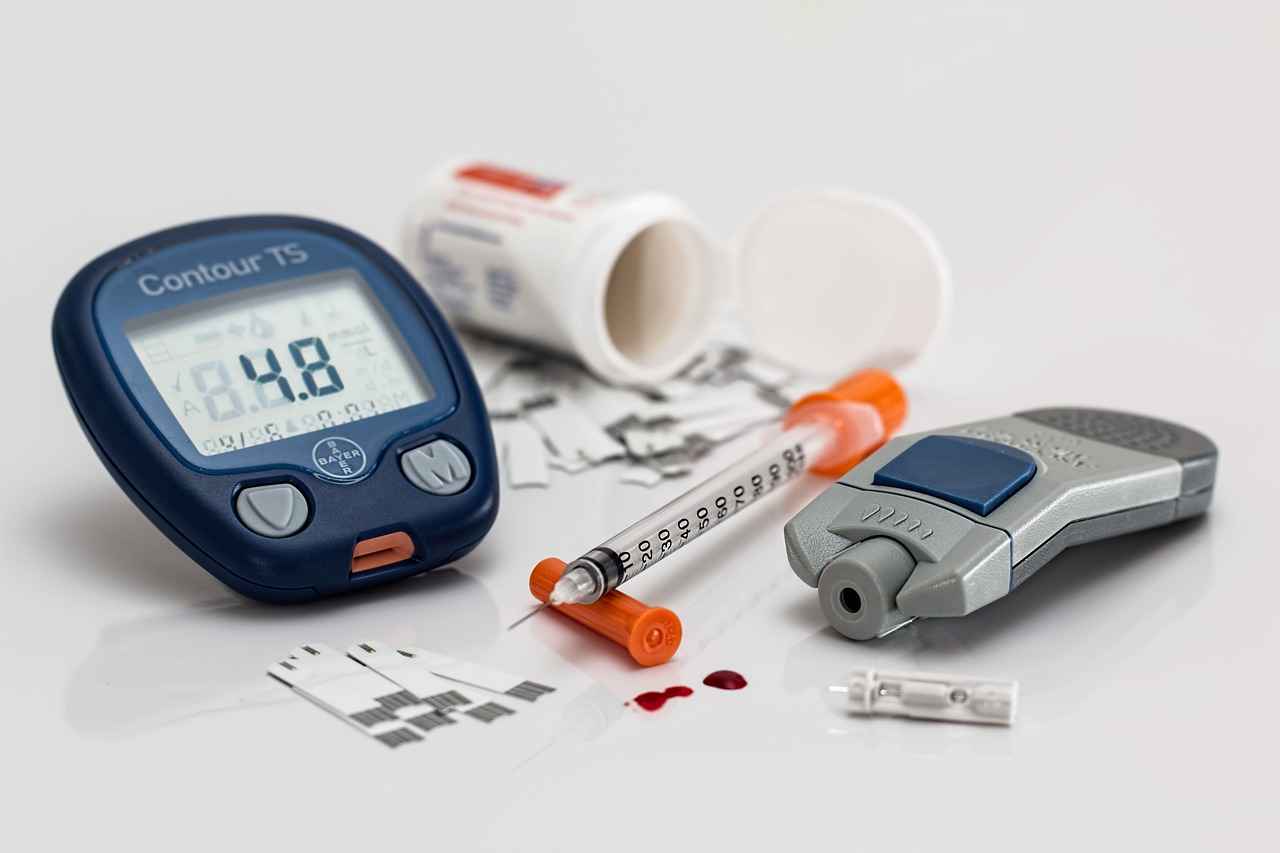
How Long Should You Fast Before a Blood Draw?
When preparing for a blood draw, understanding the fasting duration is crucial. The length of time you should fast can vary significantly based on the specific blood test being conducted. This section will provide clear guidelines on how long you should fast before a blood draw to ensure the most accurate results.
Fasting typically involves abstaining from all food and beverages, except for water, for a specified period before the test. The most common fasting durations are:
| Blood Test | Recommended Fasting Duration |
|---|---|
| Glucose Test | 8-12 hours |
| Lipid Panel | 9-12 hours |
| Liver Function Tests | 8-12 hours |
| Iron Studies | 8-12 hours |
| Comprehensive Metabolic Panel | 8-12 hours |
It is essential to note that while most tests require fasting, some may have different requirements. For example, certain tests may allow you to eat or drink clear fluids, while others may not. Always follow the specific instructions provided by your healthcare provider.
Additionally, the reason fasting is important is that it helps to eliminate variables that can potentially skew the results. For instance, consuming food or drinks can lead to elevated glucose levels or altered lipid levels, which may misrepresent your health status. Therefore, adhering to the recommended fasting duration is vital for obtaining reliable information from your blood tests.
Moreover, if you are unsure about how long you should fast or have specific medical conditions that may affect your fasting requirements, it is always best to consult with your healthcare provider. They can provide personalized guidance based on your health history and the tests being performed.
In summary, the fasting duration before a blood draw can significantly impact the accuracy of your test results. By understanding the requirements for different tests and following your healthcare provider’s recommendations, you can ensure that your blood draw is as effective and informative as possible.
Common Fasting Times for Different Tests
When it comes to blood tests, understanding the specific fasting requirements is crucial for obtaining accurate results. Different tests necessitate varying fasting durations, and adhering to these guidelines can significantly impact the reliability of the outcomes. Below is a breakdown of common blood tests and their respective fasting times.
| Blood Test | Recommended Fasting Duration | Purpose of Fasting |
|---|---|---|
| Glucose Test | 8 to 12 hours | To measure blood sugar levels accurately. |
| Lipid Panel | 9 to 12 hours | To assess cholesterol and triglyceride levels. |
| Basic Metabolic Panel | 8 to 12 hours | To evaluate glucose, calcium, and electrolyte levels. |
| Comprehensive Metabolic Panel | 8 to 12 hours | To assess overall health and organ function. |
| Iron Studies | 8 to 12 hours | To measure iron levels and assess anemia. |
It’s important to note that while fasting, patients are generally allowed to drink water. Staying hydrated can help make the blood draw easier and more comfortable. However, it is advisable to avoid any beverages other than water, as they can interfere with the test results.
In addition to the fasting periods mentioned above, some tests may have specific instructions provided by healthcare professionals. For example, certain medications or dietary restrictions may be required prior to testing. Therefore, it is recommended to consult with your healthcare provider for personalized instructions based on your health condition and the tests being performed.
Fasting is essential for specific tests as it helps to eliminate variables that could skew the results. For instance, consuming food or drink can lead to elevated glucose or lipid levels, which may result in misdiagnosis or inappropriate treatment plans. Adhering to the fasting guidelines is vital for ensuring that the lab results reflect your true health status.
In conclusion, understanding the fasting times for different blood tests is essential for anyone preparing for a blood draw. By following the recommended fasting durations and guidelines, patients can help ensure that their test results are accurate and reliable. Always remember to consult with your healthcare provider for the most accurate and personalized advice regarding fasting and blood tests.

What to Do if You Accidentally Eat or Drink?
Accidental consumption of food or beverages before a fasting blood draw can lead to confusion and anxiety. It’s essential to understand how such incidents can affect your test results and what steps you should take if you find yourself in this situation. This section provides clear guidance to help you navigate accidental consumption and ensure the accuracy of your blood tests.
When you accidentally eat or drink, the first thing to do is to remain calm. It’s a common mistake, and knowing how to handle it can alleviate stress. Here are the steps you should follow:
- Assess the Situation: Determine what you consumed and when. If it was a small amount of water or a non-caloric beverage, it may not significantly impact your test results.
- Contact Your Healthcare Provider: Reach out to the lab or your doctor’s office. They can provide specific advice based on the type of blood test you are scheduled for and the timing of your accidental consumption.
- Follow Instructions: Your healthcare provider may advise you to proceed with the test as planned or reschedule it for another day if the consumption could significantly affect the results.
Understanding the impact of accidental consumption on various blood tests is crucial. For instance, tests measuring glucose levels require strict fasting, and even a small snack could elevate your glucose readings, leading to inaccurate results. On the other hand, tests like lipid panels may be less affected by minimal water intake.
It’s also important to note that the duration of fasting can vary by test type. Generally, fasting for 8 to 12 hours is recommended for most blood tests. If you accidentally consume something within this timeframe, the waiting period may need to be extended to ensure reliable results.
In the event of accidental consumption, consider these practical tips:
- Keep a Record: Document what you consumed and the time it occurred. This information will be helpful when consulting with your healthcare provider.
- Stay Hydrated: If you drank water, it’s essential to stay hydrated, but avoid any caloric beverages or food until your test.
- Plan Ahead: To minimize the risk of accidental consumption in the future, plan your fasting period carefully. Consider scheduling your blood draw early in the morning after a night of fasting.
In summary, while accidental consumption before a fasting blood draw can be concerning, knowing how to respond can help ensure that you still receive accurate test results. Always communicate openly with your healthcare provider about any concerns or mistakes you make, as they are there to guide you through the process.

Preparing for Your Blood Draw
Preparing for a blood draw is essential for ensuring accurate test results and a smooth experience. Proper preparation not only reduces anxiety but also helps in obtaining reliable data for your healthcare provider. This section will explore various tips and considerations to keep in mind as you get ready for your blood draw.
One of the most critical aspects of preparation is understanding dietary restrictions. Depending on the type of blood test, you may need to fast for a specific period. Here are some dietary tips:
- Fasting: For tests like glucose or lipid panels, a fasting period of 8-12 hours is often required. This means no food or drink except for water.
- Hydration: Staying hydrated is crucial. Drinking water before your appointment can help make the veins more prominent, making the blood draw easier.
- Avoid Certain Foods: If fasting is required, avoid high-fat or sugary foods the day before your test, as these can affect results.
Timing can significantly influence your experience. Here are some tips for scheduling:
- Early Morning Appointments: If fasting is required, consider scheduling your blood draw early in the morning. This minimizes the time you need to wait without food.
- Choose a Day Wisely: Avoid scheduling on days when you anticipate being busy or stressed, as this can increase anxiety.
Before your blood draw, it’s essential to communicate any concerns with your healthcare provider:
- Medication: Inform your doctor about any medications or supplements you are taking, as some may interfere with test results.
- Health Conditions: Share any health issues or recent changes in your condition that may affect the procedure.
Understanding the process can help alleviate anxiety. Here’s what typically happens:
- Preparation: You will be asked to sit comfortably, and a healthcare professional will cleanse the area where the blood will be drawn.
- Blood Draw: A needle will be inserted into your vein, and blood will be collected into vials.
- Post-Procedure: After the draw, you may be asked to apply pressure to the site to minimize bruising.
Taking care of yourself after the procedure is equally important:
- Rest: Sit for a few minutes after the draw to ensure you feel well before leaving.
- Hydrate: Drink plenty of water to help replenish fluids.
- Monitor the Site: Keep an eye on the puncture site for any signs of excessive bleeding or bruising.
By following these guidelines, you can prepare effectively for your blood draw, leading to a smoother experience and more accurate test results. Remember, preparation is key in ensuring that you get the most out of your medical tests.
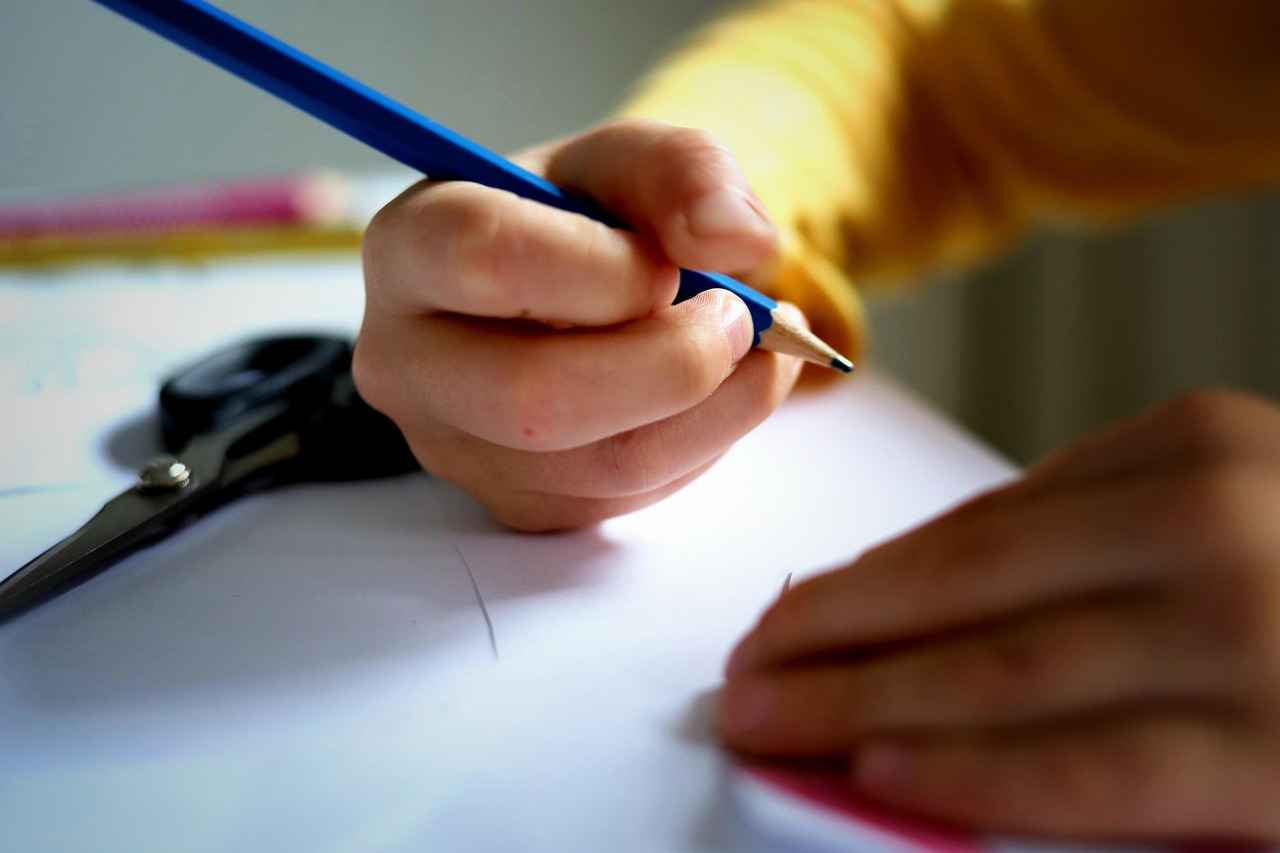
Consulting Your Healthcare Provider
When preparing for a fasting blood draw, it is crucial to understand the guidelines and recommendations surrounding this process. One of the most important steps is consulting your healthcare provider. This section delves into why this consultation is essential and what you should discuss with your doctor.
Understanding the Role of Your Healthcare Provider
Your healthcare provider is your primary resource for personalized medical advice. They possess the knowledge and expertise to help you navigate the complexities of fasting and water consumption before a blood test. Whether you have specific health concerns, are on medications, or have dietary restrictions, your doctor can provide tailored guidance that suits your individual needs.
Addressing Concerns About Fasting
Many individuals may experience anxiety or uncertainty regarding the fasting process. It is perfectly normal to have questions about what you can or cannot consume before a blood draw. Your healthcare provider can clarify these doubts, ensuring you understand the importance of fasting and how it affects your test results. For instance, they can explain why certain tests require fasting and how even minor deviations from the fasting protocol could lead to inaccurate results.
Water Consumption Guidelines
One common question is whether you can drink water while fasting. While most healthcare professionals agree that plain water is generally permissible, it’s crucial to confirm this with your doctor. They can provide specific advice based on the type of test you are undergoing. Some tests may have stricter guidelines, and your provider will help you navigate these nuances.
Discussing Medications and Health Conditions
If you are taking medications or have underlying health conditions, discussing these with your healthcare provider is vital. Some medications may require adjustments before a blood test, and your doctor can guide you on how to manage these effectively. Additionally, certain health conditions may impact your fasting requirements, making it all the more important to have an open dialogue with your healthcare provider.
Preparing for Your Consultation
To make the most of your appointment, consider preparing a list of questions and concerns ahead of time. This proactive approach ensures that you cover all necessary topics during your consultation. Some questions you might consider asking include:
- What specific tests will I be undergoing?
- How long should I fast before the blood draw?
- Can I drink water, and if so, how much?
- Are there any medications I should avoid before the test?
- What should I do if I accidentally eat or drink?
Importance of Following Medical Advice
Once you have consulted your healthcare provider, it is essential to follow their advice closely. Adhering to their recommendations can significantly impact the accuracy of your test results and your overall health management. Remember, your doctor is there to support you and help you achieve the best possible outcomes from your medical tests.
Conclusion
In summary, consulting your healthcare provider is a critical step in preparing for a fasting blood draw. They can address your specific concerns, clarify guidelines regarding fasting and water consumption, and ensure that you are fully informed and prepared for the procedure. Taking the time to seek professional advice not only enhances your understanding but also contributes to more accurate test results and better health management.

Conclusion: Best Practices for Fasting Blood Draws
When preparing for a fasting blood draw, it is essential to understand the best practices to ensure accurate test results and a smooth experience. This section aims to reinforce key points that will help you remain informed and ready for the procedure.
Understand the Importance of Fasting: Fasting before a blood draw is crucial because it helps eliminate variables that can skew the results. Certain tests, such as blood glucose and lipid panels, require fasting to provide accurate measurements. Therefore, adhering to fasting guidelines is vital for your health assessment.
Know the Duration of Fasting: Typically, fasting for 8 to 12 hours is recommended before a blood draw. However, the exact duration can vary depending on the specific test being conducted. Always verify with your healthcare provider regarding the appropriate fasting period for your situation.
Water Consumption Guidelines: One common question is whether you can drink water during the fasting period. Generally, drinking water is allowed and even encouraged, as it helps maintain hydration and makes veins easier to access. However, avoid any beverages that contain calories, such as coffee or juice, which can interfere with test results.
Preparing Mentally and Physically: In addition to dietary restrictions, mental preparation plays a crucial role. Consider the following tips:
- Schedule your blood draw early in the morning to minimize fasting duration.
- Stay relaxed; anxiety can affect your blood pressure and heart rate.
- Dress comfortably, making it easy for the technician to access your veins.
What to Do If You Break Your Fast: If you accidentally consume food or drink before your appointment, inform your healthcare provider immediately. They may advise rescheduling the test to ensure the accuracy of your results. Remember, it is always better to be safe and get the correct information than to risk inaccurate readings.
Consulting Your Healthcare Provider: If you have any doubts or specific health conditions, do not hesitate to consult your healthcare provider. They can provide personalized advice based on your medical history and the tests you are undergoing.
Final Thoughts on Best Practices: Preparing for a fasting blood draw involves understanding the requirements and following best practices. From knowing how long to fast to clarifying water consumption rules, being well-informed will help you navigate the process smoothly. Remember to stay hydrated, communicate with your healthcare provider, and approach the procedure with confidence.
Frequently Asked Questions
- Can I drink water before a fasting blood draw?
Yes, you can drink water before a fasting blood draw! Staying hydrated is important, and water won’t interfere with most test results. Just avoid anything with calories, like juice or coffee.
- How long should I fast before my blood test?
Generally, fasting for 8-12 hours is recommended, depending on the type of test. Always check with your healthcare provider for specific instructions tailored to your situation.
- What happens if I accidentally eat or drink?
If you accidentally consume food or drinks, don’t panic! Contact your healthcare provider for guidance. They might reschedule your test or advise you on the next steps.
- Are there blood tests that don’t require fasting?
Absolutely! Many blood tests don’t require fasting. Common tests like a complete blood count (CBC) can be done without fasting. Always confirm with your doctor what’s needed for your specific tests.
- Why is fasting necessary for some blood tests?
Fasting helps eliminate variables that could skew results, ensuring accuracy. It’s especially important for tests measuring glucose or lipid levels.





